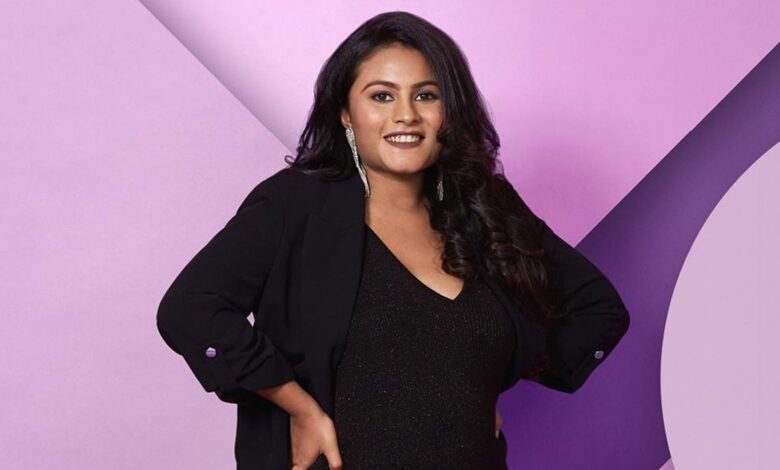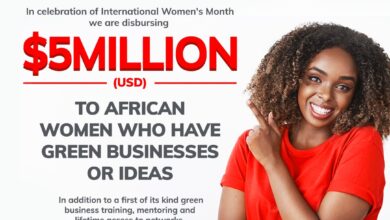Meet Asia’s 2024 30 Under 30 Social Entrepreneurs And Activists Who Are Making A Positive Impact

Forbes 30 Under 30 Asia
From waste management solutions to disability advocacy – these entrepreneurs are leading the way to a better (and greener) future
Bhagya Shree Jain aims to make plastic neutrality a mainstream sustainability concept, just like carbon neutrality. After studying waste-management solutions at university and working with the government, she founded The Disposal Company (TDC) in 2020 to advise mostly fast-moving consumer goods companies on how to reduce their plastic footprint. TDC also brokers plastic credits, similar to carbon credits, for its customers. It takes a fee but uses the rest of the money to pay waste workers to collect plastic trash from landfills to be recycled, helping companies offset their plastics use.
Jain is one of the social entrepreneurs on this year’s 30 Under 30 Asia: Social Impact list, who aim to reduce waste and help sustainability efforts in the region.
forbes asia
Jain said the initial uptake of TDC’s services was slow, but companies are starting to react to customer demands. “This is something customers have been frustrated about, the sheer amount of plastic that we see in everything we consume,” says Jain. Endorsements from celebrity-owned brands—including Bollywood star Alia Bhatt’s children’s clothing label and actor Deepika Padukon’s skincare company—also helped build the business, she adds. TDC received $50,000 in funding last year after joining the Accenture Sustainability Value Accelerator program, which partners with Ahmedabad-based startup incubator IIMA Ventures.
Jain, who is TDC’s CEO, said her greatest achievement so far is providing a stable wage for the trash collectors who work with the company. “It’s a profession that has been looked down upon, and only now are people starting to realize how important they are to communities,” she says.
Another social entrepreneur looking for sustainable solutions to cut waste is Emma Yu. The 29-year-old founded Dress Green with her husband in 2021. Based in Hong Kong, a former textile and garment manufacturing center, Dress Green works with companies and schools to upcycle their uniforms into accessories, bags, hats and ornaments. It has worked with more than 20 companies including Kerry Properties and waste-and-water-management company Veolia. Dress Green hires unemployed textile workers to do its upcycling work. Dress Green also conducted over 100 hours of workshops on upcycling for schools and companies including Adidas, Hong Kong Express Airways and KPMG. Dress Green received HK$1.4 million ($180,000) in funding from the Hong Kong government’s environmental protection department, the Hong Kong Design Centre — Yu’s alma mater — and other government organizations and schools.
Emma Yu, cofounder of Dress Green.
Supplied photo
In Singapore, Ian Chew got the idea for his platform Greenie Web at the age of 13 when he realized that websites and software would require less processing time, and thus produce fewer carbon emissions, if he could reduce code length, image size and frame rates. He developed the code carbon calculator Greenie Web. Chew, also a digitizing and sustainability consultant for the Asian Development Bank, recently led the global “28 by 28” campaign, launching education programs ahead of COP28 that teach college students to make greener code in 28 universities on all six continents.
Similarly in India, Prachi Shevgaonkar created an app called Cool The Globe, which allows users to set their own personal climate goals and metrics and help India deal with climate change. She served on the advisory board of the Climate Leadership Coalition in Europe and was one of four representatives of India at the COP27 in 2022. In January, she was appointed lead fellow of the UN Council on Energy, Environment and Water’s Next Generation India Fellowship.
Advocacy
This year’s 30 Under 30 Asia listees are also using their time and talent to advocate for issues they are passionate about.
James Parr is a champion of people with disabilities living life to the fullest. Parr lost his lower right leg while fighting osteosarcoma or bone cancer and he wants to teach the mainstream media that having a disability is not always sad. He uses social media to highlight his love of fashion, fun and athleticism, has written for Pedestrian TV, Mamamia, Esquire, Urban List and Harper’s Bazaar, and modelled for brands like Calvin Klein and Tommy Hilfiger. Last year, Parr was named Model of the Year by GQ Australia.
James Carr.
Supplied photo
After struggling for years with severe reproductive system problems, Vivi Lin channeled her pain into gender equality and menstrual health awareness in Taiwan and beyond. Vivi founded the NGO With Red in 2019, pushing for improved menstrual health education and helping National Taiwan University establish a course on menstruation. She also raises funds to provide menstrual products to Taiwanese who can’t afford them, donating emergency care kits to Ukraine and make menstrual supplies available in public spaces like the Taipei MRT bathrooms. In 2023, Lin opened the Period Museum, the first brick-and-mortar museum dedicated to all things menstrual.
Axana Soltan is a human rights attorney who has devoted her career to helping young people access education. Her family fled Afghanistan in 1999, and while studying at Virginia Commonwealth University (VCU), she assisted low-income children both in her local area and abroad. She later founded the Enhancing Children’s Lives Organization, an NGO based in the U.S. but helping young women in Afghanistan. Based on her own experiences of going to “secret schools” in Afghanistan, she developed a method to provide education to young Afghan women via solar-powered radios.
Axana Soltan.
Supplied photo
Access to healthcare
Some social entrepreneurs on the list are also providing marginalized communities with access to healthcare services.
In India, Sandeep Kumar founded DigiSwasthya, a network of rural medical clinics with remote support from doctors in cities. Kumar was inspired by his own experience as a childhood cancer patient in rural Utter Pradesh. The clinics blend telehealth appointments with visits from specialist physicians and health awareness workshops, aiming to improve access to affordable medical care in rural India. In 2021, DigiSwasthya began a partnership with Augnito, a company that offers AI telemedicine solutions.
With mental health remaining a priority for Gen Zs, Shreeya Giri founded Nepalese digital mental health platform Happy Minds. After completing her studies in London, Giri returned to Nepal on a mission to break the taboos surrounding mental illness. Happy Minds offers individual online and face-to-face counselling, as well as group workshops. It has an Employment Assistance Program, partnering with organizations such as Unilever Nepal, Leapfrog and The British College to offer free psychological counseling to their employees.
Shreeya Giri, founder of Happy Minds.
Supplied photo
Another entrepreneur focusing on mental health is Adrija Chakrabarti. The 28-year-old battled PTSD and depression while single-handedly raising a child and was inspired to start the Mental Health Movement (MHM) Chandigarh. After completing a master’s in psychology at the Maharaja Sayajirao University of Baroda in 2019, she started an Instagram campaign that became the MHM Clinic in 2020, offering therapy with an emphasis on trauma recovery. Recognized as a feminist leader by Gender at Work India and UN Women in 2022, Chakrabarti was invited to address the UN Women’s Office in New Delhi in 2023.
—Additional reporting by Danielle Keeton-Olsen
Check out our complete 2024 30 Under 30 Asia: Social Impact list here, and the full 2024 30 Under 30 Asia coverage, click here.



